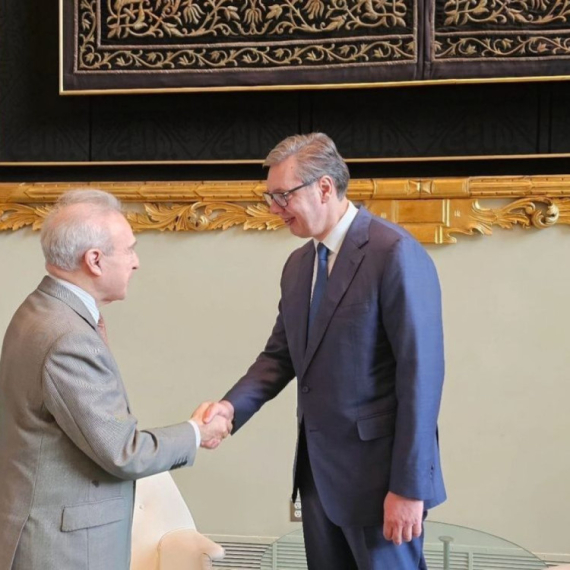Ahtisaari deputy: UNMIK in difficult position
Albert Rohan says UNMIK is in a difficult position because it is not receiving further instructions.
Tuesday, 08.04.2008.
10:50

Albert Rohan says UNMIK is in a difficult position because it is not receiving further instructions. The Former UN deputy envoy said that UNMIK had not received any instructions from New York on how the process of transferring powers to the Kosovo institutions and the EU mission should proceed. Ahtisaari deputy: UNMIK in difficult position The former UN envoy said that the unilateral declaration of Kosovo independence had solved the status question for good, and that the conflict was continuing because of Serbia’s resistance, which was supported on a diplomatic level by Russia. He said that the international envoys had had no choice but to submit a proposal to resolve the Kosovo crisis, because there had been no way for Belgrade and Pristina to reach an agreement themselves. Rohan said that the international mediators had proposed supervised independence with measures that would help the Serb minority in Kosovo. “We took independence as the basis of our proposal, and tried to accommodate Belgrade with various constraints on independence. The goal of the measures was for Serbs to be able to live a normal and safe life in Kosovo, and allow those who were displaced to return. Ahtisaari’s plan was a compromise solution that Belgrade rejected because it was based on independence, and the Kosovo people, who were dissatisfied, accepted it as the price to pay for their much desired independence,” the former envoy said. He said that despite Belgrade’s resistance, there should be no fear of armed conflict, because Serbia was not prepared to go that far. “However, there will be local, armed scuffles. Several weeks ago we had problems in Mitrovica, which were proven to have been organized by Belgrade. The problem with all small conflicts is that every spark can lead to an explosion,” Rohan warned. “Multi-ethnicity in Kosovo can at best be co-existence, and not the integration of all communities into a united society,” the former envoy stressed, adding that the Ahtisaari Plan was not the best solution, and that a compromise would have been better. He said that the problem was that Serbs were boycotting the international and Kosovo institutions on Belgrade’s instructions, and this was leading to a scenario where the measures intended for their protection could not be applied.
Ahtisaari deputy: UNMIK in difficult position
The former UN envoy said that the unilateral declaration of Kosovo independence had solved the status question for good, and that the conflict was continuing because of Serbia’s resistance, which was supported on a diplomatic level by Russia.He said that the international envoys had had no choice but to submit a proposal to resolve the Kosovo crisis, because there had been no way for Belgrade and Priština to reach an agreement themselves.
Rohan said that the international mediators had proposed supervised independence with measures that would help the Serb minority in Kosovo.
“We took independence as the basis of our proposal, and tried to accommodate Belgrade with various constraints on independence. The goal of the measures was for Serbs to be able to live a normal and safe life in Kosovo, and allow those who were displaced to return. Ahtisaari’s plan was a compromise solution that Belgrade rejected because it was based on independence, and the Kosovo people, who were dissatisfied, accepted it as the price to pay for their much desired independence,” the former envoy said.
He said that despite Belgrade’s resistance, there should be no fear of armed conflict, because Serbia was not prepared to go that far.
“However, there will be local, armed scuffles. Several weeks ago we had problems in Mitrovica, which were proven to have been organized by Belgrade. The problem with all small conflicts is that every spark can lead to an explosion,” Rohan warned.
“Multi-ethnicity in Kosovo can at best be co-existence, and not the integration of all communities into a united society,” the former envoy stressed, adding that the Ahtisaari Plan was not the best solution, and that a compromise would have been better.
He said that the problem was that Serbs were boycotting the international and Kosovo institutions on Belgrade’s instructions, and this was leading to a scenario where the measures intended for their protection could not be applied.


























































Komentari 13
Pogledaj komentare